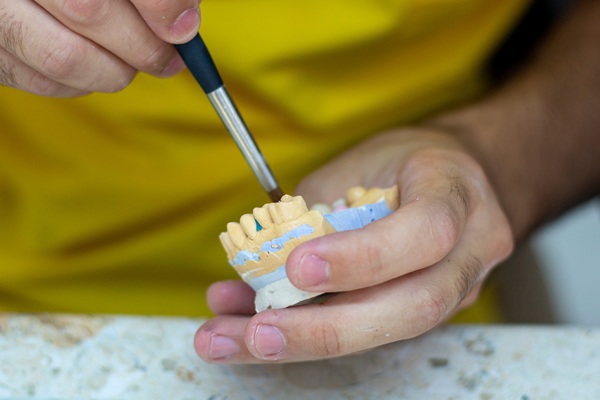What to Do When You Experience a Dental Emergency

Suffering a dental emergency can be destabilizing and inconvenient. Aside from suffering severe discomfort, you will also waste a lot of time calling different dental offices for an appointment. Therefore, you should reach out to an emergency dentist to have the issue addressed immediately without the unnecessary waiting period.
Dental emergency guidelines
If you experience a dental emergency, there are guidelines to follow that will help reduce the pain and prevent further complications.
Cracked or broken tooth
If your tooth cracks or breaks, call the dentist instantly. Before you get to the dental office, rinse the mouth with warm water and place a cold compress on the affected area.
Lip or tongue injury with serious bleeding
If you puncture your lip, bite your tongue or injure any delicate tissue in your oral cavity, then carefully clean the cut and apply a cold compress to lessen the swelling. If the bleeding is too much and fails to stop, then visit the dental emergency clinic.
Jaw pain or injury
If you think your jaw bone is broken, apply cold compression gently on the affected area and visit the dentist immediately.
Loose tooth
If one or multiple teeth loosen, go to the emergency dentist immediately. Usually, they will be able to save the tooth. You can use over-the-counter painkillers and cold compresses to reduce the pain and swelling in the affected area.
Knocked-out tooth
Take the removed tooth and rinse it with clean water. Do not abrade, scrub or detach any loose tissue. You can keep the tooth in your mouth or in a cup of milk until you reach the dentist’s office.
Failed crown or filling
If your filling or crown comes off, preserve the filling or crown safely until you can meet the dentist. If you can get dental cement, apply it on the tooth surface and use clove oil on the sensitive areas to reduce inflammation. However, ensure you contact a dental expert before attempting any of these procedures.
Object trapped between the teeth
If something gets stuck between the teeth, gently try to remove it with dental floss. If it does not detach easily, do not force it. Instead, contact your dentist immediately.
Painful swelling
Contact the dentist for an appointment if you are experiencing any painful inflammation in your mouth. It could be caused by an abscess, meaning there is an infected gum pocket filled with pus that could cause severe infection. Before you meet with the dentist, try rinsing the mouth with warm water to reduce the pain and pressure.
Unexpected or severe tooth pain
If you are suffering from severe tooth pain, clean your mouth with warm water and gently floss your teeth to remove any debris that may be between the teeth. Visit the dentist if the pain persists.
Pericoronitis
This infection happens when wisdom teeth fail to develop correctly. The symptoms usually include gum inflammation and irritation, foul breath or a lousy taste in the mouth. You should visit the emergency dentist immediately if you notice these signs.
Final note
A dental emergency is sometimes unavoidable, but these simple guidelines will ensure you respond appopriately. In any case, you should contact a dental professional immediately to address the issue.
Request an appointment here: https://www.lilburnfamilydentistry.com or call Lilburn Family Dentistry at (770) 800-0178 for an appointment in our Lilburn office.
Check out what others are saying about our services on Yelp: Read our Yelp reviews.
Recent Posts
Dental crowns reinforce a decayed or damaged tooth, restoring its function and beauty. These are just two of the many benefits of crowns. For instance, they also require minimal aftercare. If you are dealing with a broken or root canal-treated tooth, consider this popular dental restoration.Dental crowns can restore a variety of dental conditions. They…
Dental implant restorations have transformed dentistry by offering a versatile and reliable solution for replacing missing teeth. This approach to smile restoration seamlessly combines durability and natural aesthetics, restoring oral function and appearance. Because implant restorations can support different types of dental prosthetics, they address a variety of needs while preserving oral health. Understanding the…
Dental crowns are restorations that can address a range of dental issues, from severely damaged teeth to protecting a tooth after a root canal. They help preserve oral health and enhance a smile's appearance. In addition to being versatile, they are available in different materials, which can be helpful for individuals who want options.Dental crowns…
A broken tooth is a common dental issue that can happen for many reasons, such as accidents, biting into something hard, or untreated tooth decay. Whether a dentist can save a broken tooth or needs to remove it depends on how severe the damage is and how quickly patients seek treatment. While modern dental techniques…


